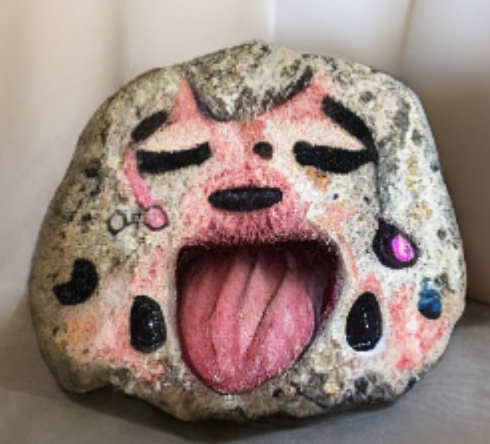In recent years, the Ahegao facial expression has become a popular trend in certain subcultures, particularly among fans of anime and manga pornography. This expression, which typically depicts exaggerated pleasure and arousal, has also found its way into social media through filters that mimic the Ahegao features. However, these filters have been the subject of controversy and criticism, with some arguing that they are inappropriate or offensive.
The Ahegao filter trend began on Snapchat, where users could apply an augmented reality filter to their faces that would distort their features to resemble the Ahegao expression. This filter quickly gained popularity among young users, who shared photos and videos of themselves making the face on social media. The trend soon spread to other platforms, including Instagram, TikTok, and even gaming platforms like Twitch.
While some users find the Ahegao filter trend harmless and fun, others have expressed concerns about its sexualization of women and its potential to promote harmful stereotypes. The Ahegao expression is often associated with anime and manga pornography, which is known for its exaggerated and unrealistic depictions of female characters. Critics argue that the use of Ahegao filters reinforces these harmful stereotypes and objectifies women.
The Ahegao filter trend has also raised concerns about the impact it could have on young users, particularly those who may be exposed to sexual content at a young age. Some worry that the use of Ahegao filters could normalize and desensitize young users to sexual content, leading to potentially harmful attitudes and behaviors.
In response to these concerns, some social media platforms have taken steps to restrict or remove Ahegao filters from their apps. Snapchat, for example, has removed the Ahegao filter from its platform, citing concerns about its potential to promote harmful stereotypes. Instagram has also restricted the use of Ahegao hashtags and filters on its platform.
In conclusion, the Ahegao filter trend has become a controversial topic on social media, with some users embracing it as a harmless and fun trend, while others view it as inappropriate or offensive. While filters can be a fun way to express oneself on social media, it is important to consider the potential impact they may have on others and to be mindful of the messages they may send. Ultimately, it is up to individual users to decide whether or not they wish to participate in the Ahegao filter trend, but it is important to be aware of the potential consequences of such actions.
